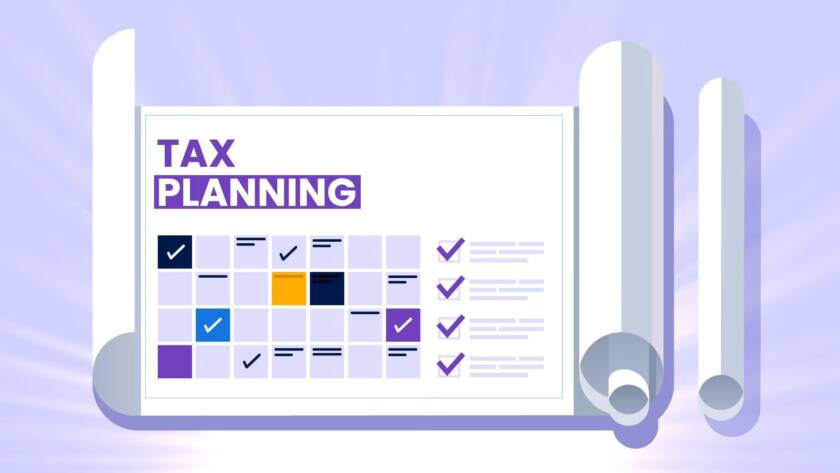Effective tax planning is more than just a year-end activity. It’s a strategic process that can help businesses minimize their tax burden, optimize cash flow, and invest savings back into growth. By understanding and leveraging the tax code throughout the year, businesses can make decisions that create long-term financial benefits. Here’s how tax planning can save your business money in the long run:

- Optimizing Deductions and Credits
Tax planning enables businesses to strategically identify and maximize eligible deductions and credits. For example, credits for research and development (R&D), energy-efficient equipment, and hiring veterans or individuals from targeted groups can significantly reduce tax liabilities. In addition, ordinary business expenses such as supplies, travel, and operating costs are deductible, but proactive planning ensures these deductions are fully optimized.
- Managing Cash Flow
By strategically planning taxes, businesses can manage their cash flow more effectively. For example, knowing what tax payments are due and when can prevent last-minute cash shortages. Also, tax planning can help you take advantage of installment payment options or defer payments when beneficial. For instance, spreading out the cost of capital investments can balance your cash flow, while certain accounting methods—such as cash versus accrual—may allow you to defer income and control the timing of tax payments.
- Strategically Structuring Purchases and Investments
Tax planning involves timing purchases and investments to maximize tax benefits. For example, through Section 179 expensing and bonus depreciation, businesses can immediately deduct the cost of qualifying equipment and assets. Planning purchases to align with these tax benefits can lead to considerable savings, especially when buying large assets such as vehicles, machinery, or technology. Investing in assets before the fiscal year-end and leveraging full expensing options allows businesses to take advantage of tax savings sooner rather than later.
- Business Structure Considerations
Your business’s legal structure impacts how taxes are calculated and paid. Sole proprietorships, partnerships, S corporations, C corporations, and LLCs each have different tax treatments and liabilities. Reviewing and possibly adjusting your business structure with a tax advisor can reduce your tax burden in the long term. For instance, S corporations offer pass-through taxation, avoiding double taxation that affects C corporations. Revisiting your entity type as the business grows or faces new challenges ensures that your structure remains tax-efficient.
- Retirement Plans and Employee Benefits
Offering retirement plans and benefits can save businesses money while attracting top talent. Contributions to employee retirement plans like 401(k)s, as well as health insurance benefits, are often tax-deductible for businesses, reducing taxable income. Additionally, contributions to your own retirement savings can also lower your taxable income. Properly structuring employee benefits not only saves money on taxes but also supports recruitment and retention.
- Avoiding Penalties and Interest
Tax planning also helps avoid penalties and interest charges from underestimating or missing tax payments. Ensuring that estimated quarterly taxes are accurate, filing on time, and making timely payments reduces the risk of costly penalties. Additionally, a well-thought-out tax strategy can prepare your business for audits, further reducing potential risks or disputes with the IRS. Proactive planning keeps your business in good standing and reduces unnecessary expenses.
- Succession and Exit Planning
Long-term tax planning includes strategies for business succession or exit. Proper planning ensures that when it’s time to transfer ownership or sell the business, you minimize capital gains taxes and other liabilities. This might involve setting up trusts, restructuring ownership, or creating buy-sell agreements that allow for a smooth and tax-efficient transition. Advanced preparation in these areas can prevent a substantial tax hit when the time comes to pass on or exit the business.
Conclusion
Comprehensive tax planning offers long-term financial benefits, allowing your business to reinvest in growth, manage cash flow, and avoid penalties. It’s an ongoing process that should be revisited regularly to adjust to tax code changes and shifting business needs. For customized tax planning strategies that maximize your business’s financial health, consider consulting with a professional, like Thanh Dat Tax & Accounting, to navigate the complexities of tax obligations and position your business for sustained success.



